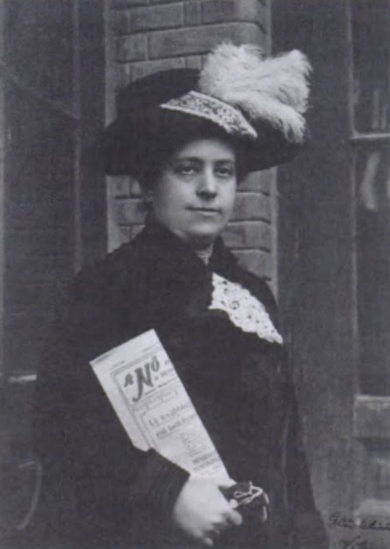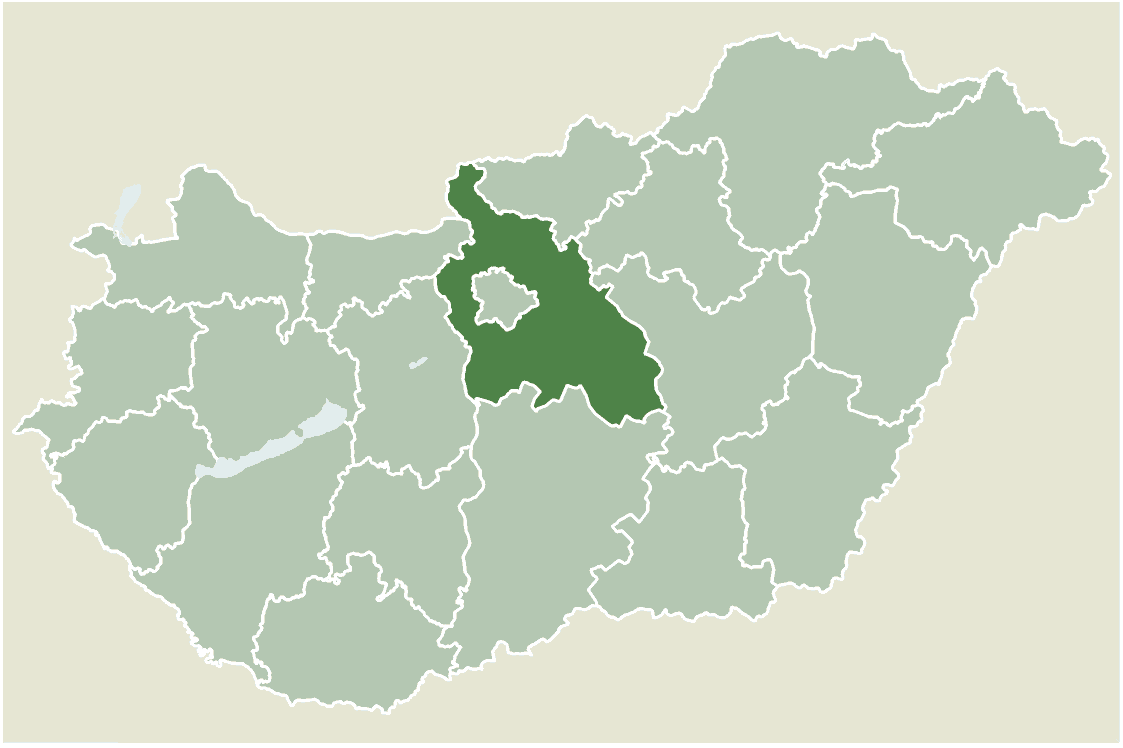|
Feminist Association
The Hungarian Feminist Association ( hu, Feministák Egyesülete (FE), 1904–1942) was created by Rosika Schwimmer and Vilma Glücklich. The organization pushed for women's equality in Hungary in all spheres of women's life. In addition to pressing for women's suffrage, they drafted replies to modification of the marriage statutes and urged government response to address employment and training for women workers. History Both Vilma Glücklich and Rosika Schwimmer came from backgrounds of organizing and protecting women laborers and moved into the sphere of women's issues more generally. Developing contacts with the international women's movement, Schwimmer corresponded with women like Marie Lang and Adelheid Popp of Austria and Aletta Jacobs of the Netherlands. These prominent feminists urged establishment of a Hungarian women's organization which would bring the varied interests of other women's organizations into a united focus. Jacobs, in particular, urged Schwimmer to creat ... [...More Info...] [...Related Items...] OR: [Wikipedia] [Google] [Baidu] |
Hungarian Feminist Association 1924
Hungarian may refer to: * Hungary, a country in Central Europe * Kingdom of Hungary, state of Hungary, existing between 1000 and 1946 * Hungarians, ethnic groups in Hungary * Hungarian algorithm, a polynomial time algorithm for solving the assignment problem * Hungarian language, a Finno-Ugric language spoken in Hungary and all neighbouring countries * Hungarian notation, a naming convention in computer programming * Hungarian cuisine, the cuisine of Hungary and the Hungarians See also * * {{disambiguation Language and nationality disambiguation pages ... [...More Info...] [...Related Items...] OR: [Wikipedia] [Google] [Baidu] |
Women's Suffrage
Women's suffrage is the right of women to vote in elections. Beginning in the start of the 18th century, some people sought to change voting laws to allow women to vote. Liberal political parties would go on to grant women the right to vote, increasing the number of those parties' potential constituencies. National and international organizations formed to coordinate efforts towards women voting, especially the International Woman Suffrage Alliance (founded in 1904 in Berlin, Germany). Many instances occurred in recent centuries where women were selectively given, then stripped of, the right to vote. The first place in the world to award and maintain women's suffrage was New Jersey in 1776 (though in 1807 this was reverted so that only white men could vote). The first province to ''continuously'' allow women to vote was Pitcairn Islands in 1838, and the first sovereign nation was Norway in 1913, as the Kingdom of Hawai'i, which originally had universal suffrage in 1840, r ... [...More Info...] [...Related Items...] OR: [Wikipedia] [Google] [Baidu] |
New York Public Library
The New York Public Library (NYPL) is a public library system in New York City. With nearly 53 million items and 92 locations, the New York Public Library is the second largest public library in the United States (behind the Library of Congress) and the fourth largest in the world. It is a private, non-governmental, independently managed, nonprofit corporation operating with both private and public financing. The library has branches in the boroughs of the Bronx, Manhattan, and Staten Island and affiliations with academic and professional libraries in the New York metropolitan area. The city's other two boroughs, Brooklyn and Queens, are not served by the New York Public Library system, but rather by their respective borough library systems: the Brooklyn Public Library and the Queens Public Library. The branch libraries are open to the general public and consist of circulating libraries. The New York Public Library also has four research libraries, which are also open to the ge ... [...More Info...] [...Related Items...] OR: [Wikipedia] [Google] [Baidu] |
National Archives Of Hungary
The National Archives of Hungary (in Hungarian: ''Magyar Nemzeti Levéltár'') were created in 1756. They were first located in Pressburg. In 1784, they were transferred to Buda. The National Archives of Hungary is the nation's record keeper. Archival work in the 21st century is to collect, to catalog, and to restore historic documents, but also to serve the needs of society and the citizens, and provide them assistance in their research into history. These valuable records are preserved and made available for you if you want to research your family’s history or a historical topic that interests you. See also * Ottoman Archives *Venice State Archive *Dubrovnik Archive *List of national archives *Leopold Óváry References External links National Archives of Hungary {{DEFAULTSORT:National Archives Of Hungary Hungary Hungary ( hu, Magyarország ) is a landlocked country in Central Europe. Spanning of the Carpathian Basin, it is bordered by Slovakia to the ... [...More Info...] [...Related Items...] OR: [Wikipedia] [Google] [Baidu] |
National Széchényi Library
The National Széchényi Library ( hu, Országos Széchényi Könyvtár) (OSZK) is a library in Budapest, Hungary, located in Buda Castle. It is one of two Hungarian national libraries, the other being University of Debrecen Library. History The library was founded in 1802 by the highly patriotic Hungarian aristocrat Count Ferenc Széchényi. Széchényi traveled the world buying Hungarian books, which he assembled and donated to the nation. In 1803, the public library was opened in Pest. Széchényi's example resulted in a nationwide movement of book donations to the library. In 1808, the Hungarian National Assembly ("Diet") created the Hungarian National Museum to collect the historical, archaeological and natural relics of Hungary. The Museum was merged into the Library and for the last 200 years this is how it has existed, a national depository for written, printed and objective relics of the Hungarian past. In 1846, the Hungarian National Museum moved into its new building ... [...More Info...] [...Related Items...] OR: [Wikipedia] [Google] [Baidu] |
Kistarcsa
Kistarcsa () is a town in Pest County, Budapest metropolitan area, Hungary. A site of the Kistarcsa concentration camp during the Holocaust. Later an internment camp of State Protection Authority for political prisoners during the 1950s. History Only a few archaeological excavations were held on the territory of Kistarcsa; the earliest findings are from the Neolithic Era (4000–2500 BC). From this time it was always a populated area: Celts, Vandals, Alans, Sarmatas and Avars lived here. After the fall of the Avar Empire the Magyars found an underpopulated area, so they could settle down easily. Their settlement can be dated back to the 10th to 13th centuries according to the excavated area next to the cemetery of Kistarcsa. Notable people * Bernadett Baczkó, judoka *Jane Haining, Scottish Church of Scotland missionary *László Háry, major general, aviator and a Commander of the First Independent Hungarian Air Force * Zoltán Meszlényi, martyr bishop * József Simándy, t ... [...More Info...] [...Related Items...] OR: [Wikipedia] [Google] [Baidu] |
Pacifist
Pacifism is the opposition or resistance to war, militarism (including conscription and mandatory military service) or violence. Pacifists generally reject theories of Just War. The word ''pacifism'' was coined by the French peace campaigner Émile Arnaud and adopted by other peace activists at the tenth Universal Peace Congress in Glasgow in 1901. A related term is ''ahimsa'' (to do no harm), which is a core philosophy in Indian Religions such as Hinduism, Buddhism, and Jainism. While modern connotations are recent, having been explicated since the 19th century, ancient references abound. In modern times, interest was revived by Leo Tolstoy in his late works, particularly in ''The Kingdom of God Is Within You''. Mahatma Gandhi propounded the practice of steadfast nonviolent opposition which he called " satyagraha", instrumental in its role in the Indian Independence Movement. Its effectiveness served as inspiration to Martin Luther King Jr., James Lawson, Mary and Charl ... [...More Info...] [...Related Items...] OR: [Wikipedia] [Google] [Baidu] |
Concentration Camp
Internment is the imprisonment of people, commonly in large groups, without charges or intent to file charges. The term is especially used for the confinement "of enemy citizens in wartime or of terrorism suspects". Thus, while it can simply mean imprisonment, it tends to refer to preventive confinement rather than confinement ''after'' having been convicted of some crime. Use of these terms is subject to debate and political sensitivities. The word ''internment'' is also occasionally used to describe a neutral country's practice of detaining belligerent armed forces and equipment on its territory during times of war, under the Hague Convention of 1907. Interned persons may be held in prisons or in facilities known as internment camps (also known as concentration camps). The term ''concentration camp'' originates from the Spanish–Cuban Ten Years' War when Spanish forces detained Cuban civilians in camps in order to more easily combat guerrilla forces. Over the following ... [...More Info...] [...Related Items...] OR: [Wikipedia] [Google] [Baidu] |
Nazis
Nazism ( ; german: Nazismus), the common name in English for National Socialism (german: Nationalsozialismus, ), is the far-right totalitarian political ideology and practices associated with Adolf Hitler and the Nazi Party (NSDAP) in Nazi Germany. During Hitler's rise to power in 1930s Europe, it was frequently referred to as Hitlerism (german: Hitlerfaschismus). The later related term "neo-Nazism" is applied to other far-right groups with similar ideas which formed after the Second World War. Nazism is a form of fascism, with disdain for liberal democracy and the parliamentary system. It incorporates a dictatorship, fervent antisemitism, anti-communism, scientific racism, and the use of eugenics into its creed. Its extreme nationalism originated in pan-Germanism and the ethno-nationalist '' Völkisch'' movement which had been a prominent aspect of German nationalism since the late 19th century, and it was strongly influenced by the paramilitary groups that emerged af ... [...More Info...] [...Related Items...] OR: [Wikipedia] [Google] [Baidu] |
Melanie Vámbéry
Melanie is a feminine given name derived from the Greek μελανία (melania), "blackness" and that from μέλας (melas), meaning "dark". at Perseus project Borne in its Latin form by two saints, and her granddaughter Melania the Younger,Behind the Name /ref> the name was in ... [...More Info...] [...Related Items...] OR: [Wikipedia] [Google] [Baidu] |
World War I
World War I (28 July 1914 11 November 1918), often abbreviated as WWI, was one of the deadliest global conflicts in history. Belligerents included much of Europe, the Russian Empire, the United States, and the Ottoman Empire, with fighting occurring throughout Europe, the Middle East, Africa, the Pacific, and parts of Asia. An estimated 9 million soldiers were killed in combat, plus another 23 million wounded, while 5 million civilians died as a result of military action, hunger, and disease. Millions more died in genocides within the Ottoman Empire and in the 1918 influenza pandemic, which was exacerbated by the movement of combatants during the war. Prior to 1914, the European great powers were divided between the Triple Entente (comprising France, Russia, and Britain) and the Triple Alliance (containing Germany, Austria-Hungary, and Italy). Tensions in the Balkans came to a head on 28 June 1914, following the assassination of Archduke Franz Ferdin ... [...More Info...] [...Related Items...] OR: [Wikipedia] [Google] [Baidu] |
National Assembly (Hungary)
The National Assembly ( hu, Országgyűlés, lit=Country Assembly) is the parliament of Hungary. The unicameral body consists of 199 (386 between 1990 and 2014) members elected to 4-year terms. Election of members is done using a semi-proportional representation: a mixed-member majoritarian representation with partial compensation via transfer votes and mixed single vote; involving single-member districts and one list vote; parties must win at least 5% of the popular vote in order to gain list seats assembly. The Assembly includes 25 standing committees to debate and report on introduced bills and to supervise the activities of the ministers. The Constitutional Court of Hungary has the right to challenge legislation on the grounds of constitutionality. The assembly has met in the Hungarian Parliament Building in Budapest since 1902. The current members are the members of the National Assembly of Hungary (2022–2026). History The Diet of Hungary ( hu, Országgyűlés) was ... [...More Info...] [...Related Items...] OR: [Wikipedia] [Google] [Baidu] |






